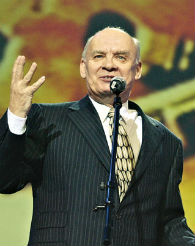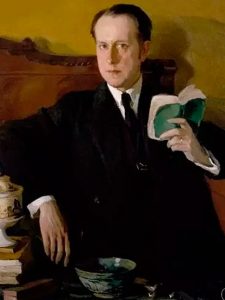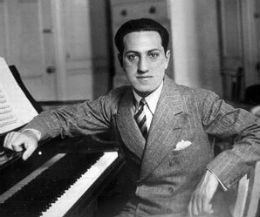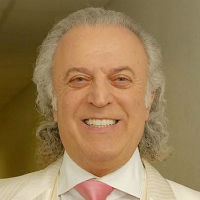“SIMPLE CZECH MUSICIAN” ANTONIN DVORAK
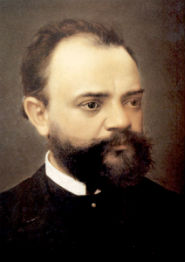 An independent talent, formed under adverse circumstances and victoriously emerged from a difficult struggle.
An independent talent, formed under adverse circumstances and victoriously emerged from a difficult struggle.
Antonin Dvořák is undoubtedly the most famous Czech of all time. He succeeded in the fact that not all great people could do it. During his lifetime, he was valued throughout Europe and the USA, and his works were known in Australia. The powerful talent and hard work of Dvorak brought many magnificent works to the world musical culture.
Family traditions
September 8, 1841 in the small Czech village Nelahozeves on the left bank of the Vltava river was born the future musician Antonin Leopoldovich Dvorak. His father, like his grandfather and great-grandfather, was a butcher. For the same activity in the future, they began to prepare a white-toothed burly Tonchka: as soon as the kid learned to walk, he was presented with an apron and a little ass, and a little later he had his own duties in the shop.
composer Antonin Dvořák However, young Dvořák liked leisure time more when he and his brothers played improvised dances: he picked up a tinder and tried to convey some kind of folk song. Scraps of melodies were constantly in his head, but so far only he heard them …
When the time came, Tonky was sent to school. That’s where his acquaintance with classical music happened. These were truly wonderful times for a diligent student. But the two-year school course was over, and Antonina decided to send Zlotnitsa to the city to master the craft of a butcher. Dvorak diligently delved into the profession, and then, as expected, began to work in the slaughterhouse. Only a few leisure hours remained for music lessons during these years.
Having received the relevant document, which allowed to start his own business, the young man was finally able to think about the future. His dreams were modest then. The artist was still dozing in it. Romantic impulses have not yet manifested. He was just a craftsman who wanted to change one profession to another, more attractive to him.
Novice musician Antonin Dvorak
Dvorak turned 16 years old, when his father, yielding to the insistent requests of his son, took him on his wagon to Prague and helped determine the Organ School, which trained professional composers. And the young man began to learn: he diligently sat at scores and made out notes. I passed the final exam successfully, but only to the composer Antonin Dvorzhakharakteristika, issued by the school’s administration, stated: “Great, but rather practical talent … In theory, he is weaker”.
After graduating from school, Antonin encountered difficulties: in the orchestras all the places were occupied, and the church organist could not be settled. For some time he was looking for a job, after which he entered as a violist in the ensemble of Karel Komzak. Although the team performed only at balls and in restaurants, the manager sought to constantly improve the level of professionalism of his players. Therefore, the practice was good.
Soon, Komzak offered Dvorák a place in the orchestra of a Prague hospital for the mentally ill, where he himself played the organ. Thus, the composer could communicate with the madmen with the help of the comprehensible to both sides of the language of music.
New changes in the life of Antonin took place in the autumn of 1862, when the Provisional Theater opened in Prague and the musicians of the Komzak Chapel, who had a good reputation, became the core of his future orchestra. He worked there for 10 years, and during that time he managed to take part in the performance of many famous operas. It was a great school for a young musician who wanted to write his own works. There was almost no free time left; nevertheless, Dvorak was constantly engaged in self-education and was tireless in his studies. Once, sitting at the piano, he enthusiastically played music. A cousin who entered his room asked her brother to take her to the theater. Only fifteen minutes later, having finished playing, he finally heard her request.
Love for sisters
Antonín Dvořák with his wife Annnai wife Anna in London (1886)
During his studies at the Organ School, Dvorak created the first chamber works – a quintet and a quartet, and in 1865 he tried his hand at a symphony. At the same time, a very expensive work was written to him – the vocal cycle “Cypress”, which was a monument to the composer’s first feeling for the charming actress of the Provisional Theater, Josefina Chermakova. Spoiled by public worship, she did not respond to the love of a restrained, shy musician.
And then the actress changed Prague to Weimar, and Dvorak, who was engaged in music with her younger sister, suddenly discovered that his ward not only learned to play the piano and sing, but also turned into a lovely 19-year-old girl. On November 17, 1873, Antonin was married to Anna. The family grew rapidly: in total they had 6 daughters and 3 sons.
In order to earn at least some money, the musician took the place of the organist in the church, and his wife began to sing in church choirs. However, even the financial help of friends did not save from want. The composer found solace in the work and by the end of the 1870s he created many works of various genres. They gradually evolved individual features of the Dvorak style.
